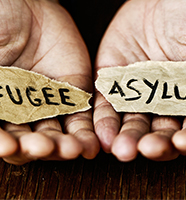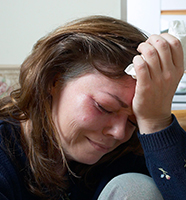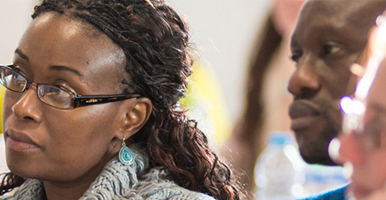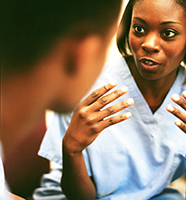Secondary care
Hospitalisation and the asylum seeker and refugee patient/service user
Most asylum seeker and refugee patients/service users can cope with hospitalisation without any difficulties. However, for some, certain aspects of the hospital experience can be extremely alienating and threatening, even for those asylum seekers and refugees without a reported trauma history.
Guidance on helping asylum seekers and refugees when admitted in hospital
- Avoid intimidating asylum seeker and refugee patients with a large number of staff surrounding their bed. Large ward rounds may be very threatening to some.
- Avoid frequent room changes and beds, where possible.
- Try minimising relocations as much as possible. Frequent moves around wards can remind asylum seekers of their migration experience.
- Explain why you are repeating blood tests to alleviate any anxiety.
- Where possible it is important to nominate a named nurse or medical representative to enable rapport and trust and this person can be the one who conveys information to the patient.
- Facilitate an asylum seeker or refugee's access to a health advocate or other appropriate professional to assist them in making major health decisions and to prevent them from feeling overwhelmed.
- Be prepared to repeat information, particularly if the client appears confused. Gain consent from an asylum seeker to inform the accommodation provider about their admission to hospital.
- Plan the discharge; where necessary providing a supporting letter to prevent dispersal to another area will ensure the continuity of care.
- Use a trained interpreter
___________________________________________________________________________________________________________________
Maternity care
Many refugee women will have had minimal exposure to formal hospital-based antenatal care. Previous deliveries may have taken place at home, often with the assistance of a traditional birthing assistant. Members of the extended family may have had a pivotal role in the postnatal care of mother and baby. Certain traditional foods or practices that may be difficult to access in the UK may be thought to be necessary in both the antenatal and postnatal period.
Pregnant women may be unfamiliar with the type of care available in the UK. If possible, offer a choice of a female health worker and interpreter. Interpreters should also be provided at antenatal classes. A hand-held antenatal record should be given, as for other pregnant women, which is particularly useful if women asylum seekers move accommodation. A woman who is pregnant as a result of rape will need especially sensitive support. She may face particular difficulties relating to her baby, although this is not universal. Women in many cultures are used to being supported by female family members when giving birth, and will feel their absence. Husbands and male partners are rarely the major sources of support and may be in an unfamiliar role. Dispersal can increase isolation, with separation from potential support networks.
Refugee women may have higher-risk pregnancies owing to some of the following factors:
- multiple spontaneous or elective abortions
- previous still birth
- neonatal death
- multigravida
- short spacing intervals between pregnancies
- female genital mutilation (see Female Genital Mutilation, p.87)
- recurrent UTI (possibly associated with female genital mutilation)
- pelvic infections (endemic, seldom treated, or resulting from
- sexual assaults or complications of FGM)
- pregnancy weight <45 kg
- anaemia <10 g/dh sickle cell disease, thalassaemia
- psychosocial issues
Women may also have complications related to nutritional and vitamin D deficiency, and infectious diseases such as schistosomiasis and latent TB.
Watch this short film describing the situation of pregnant women asylum seekers in the UK featuring Juliet Stevenson.
Dignity in Pregnancy for Asylum-Seeking Woman' (Refugee Council, 2013)
To find your nearest maternity service use the location search on the NHS website.
___________________________________________________________________________________________________________________
Sexual health
It is important to remember that some women and men of all ages may have experienced sexual violence either during the conflict in the country of origin or during migration, or at both times. This is used as a weapon; many victims may have HIV/AIDS. In many cultures stigma, fear and breaking confidentiality makes this a diffictult topic for anyone to report or disclose to health care professionals. Health care professionals should try to ask general or indirect questions. Burnett and Fassil suggest that making a short statement and then asking a question may be easier. For example 'I know that some people in your situation have experienced sexual violation. Has this ever happened to you?'
Resources
If an asylum seeker or refugee has become a victim of, or has AIDS, many organisations provide support and information. These include:






